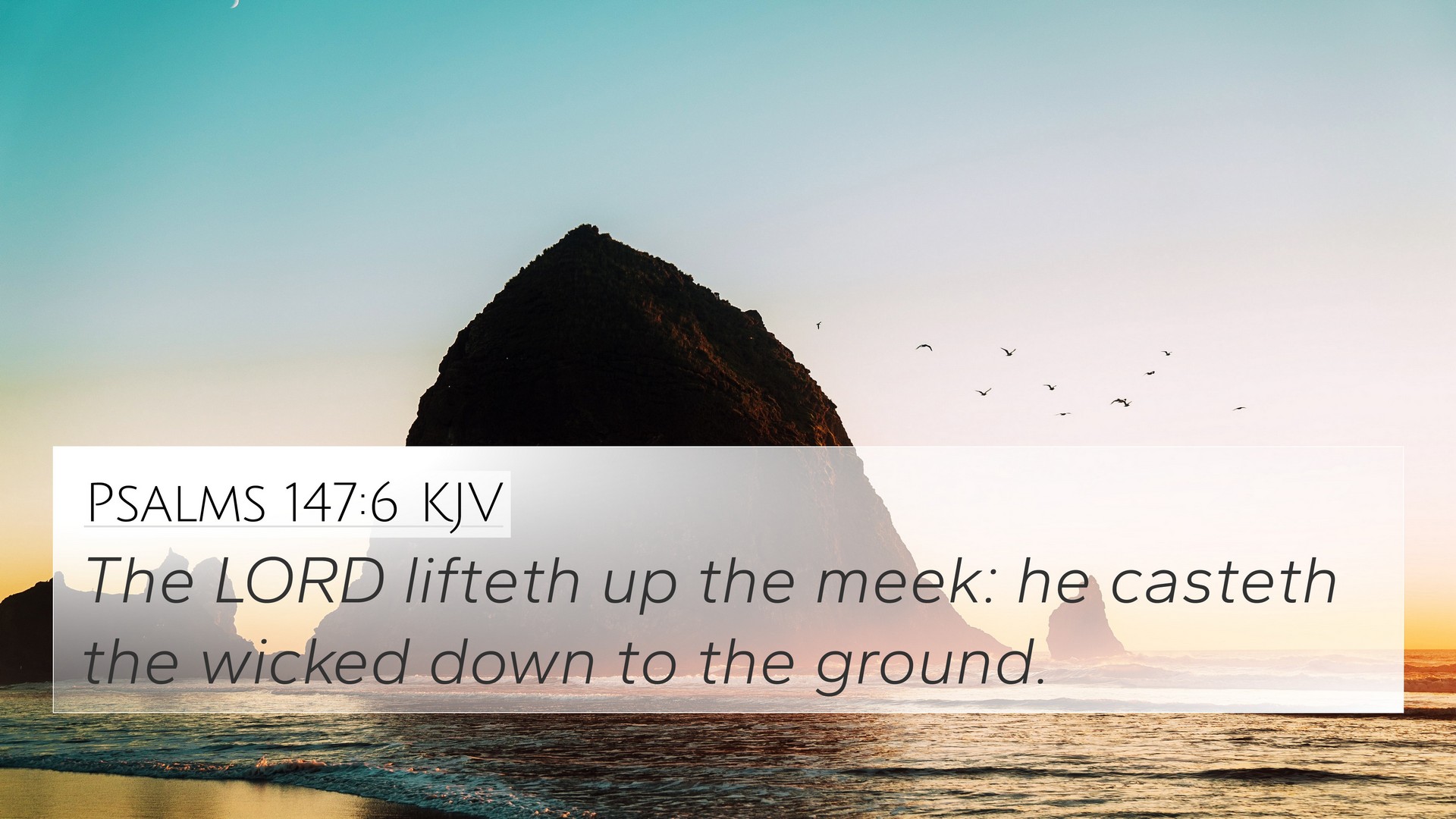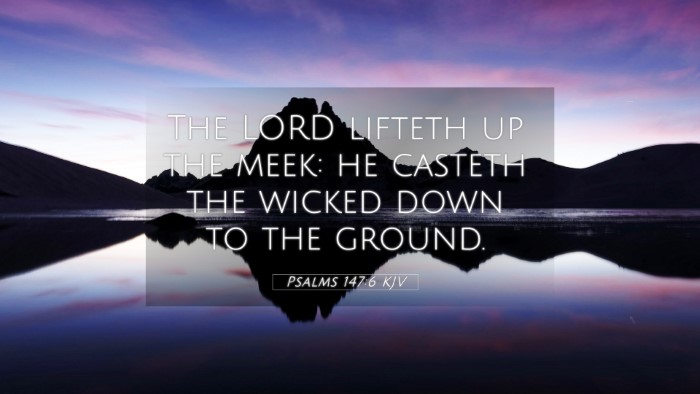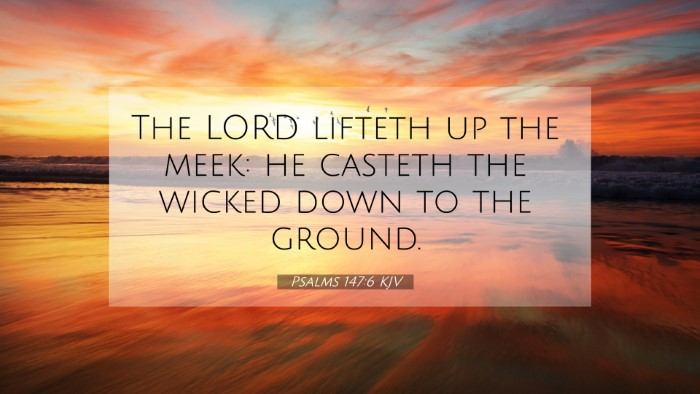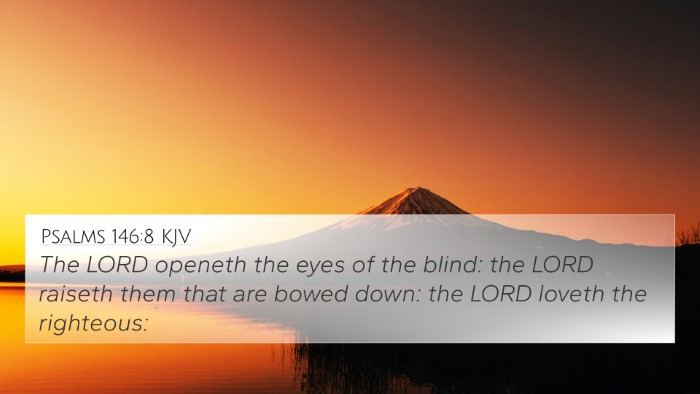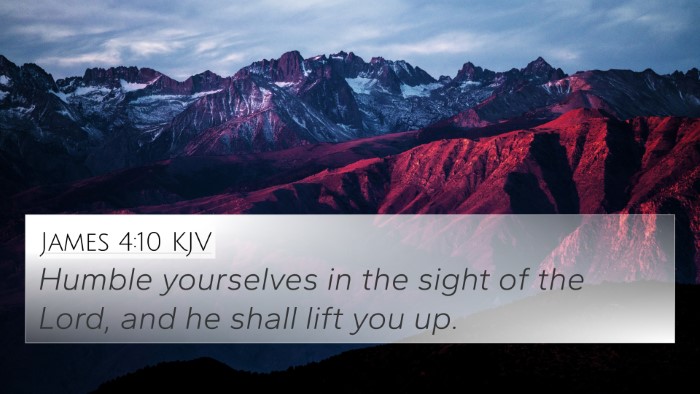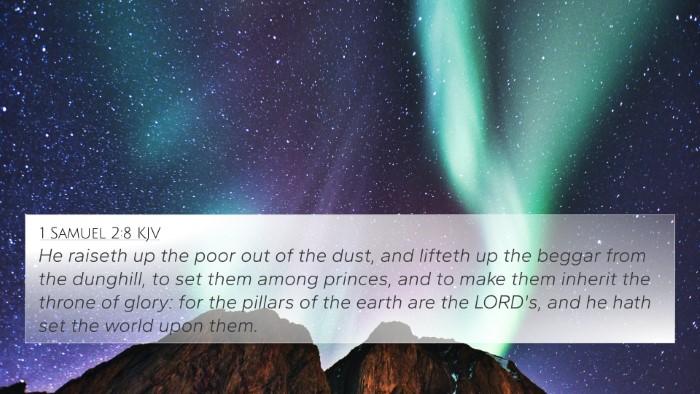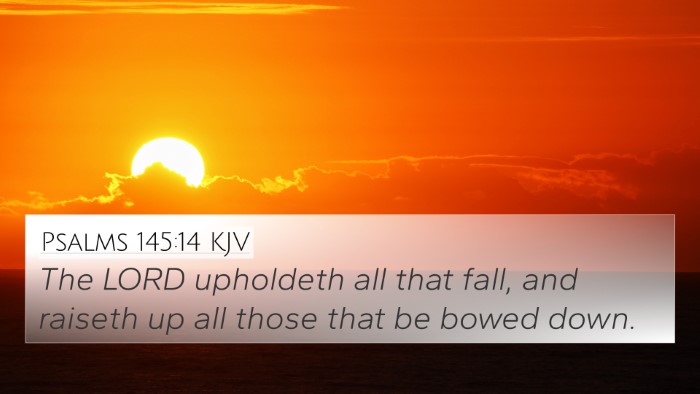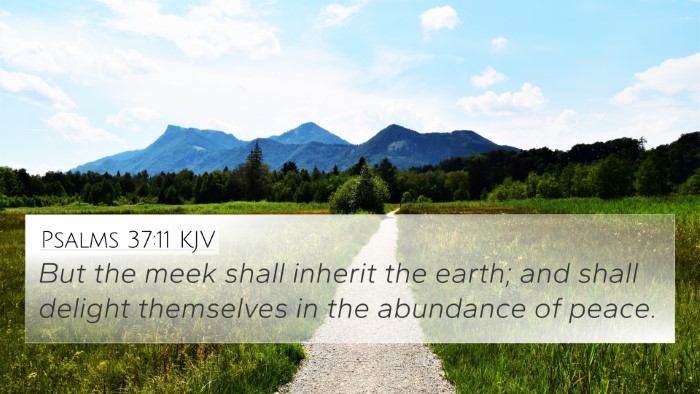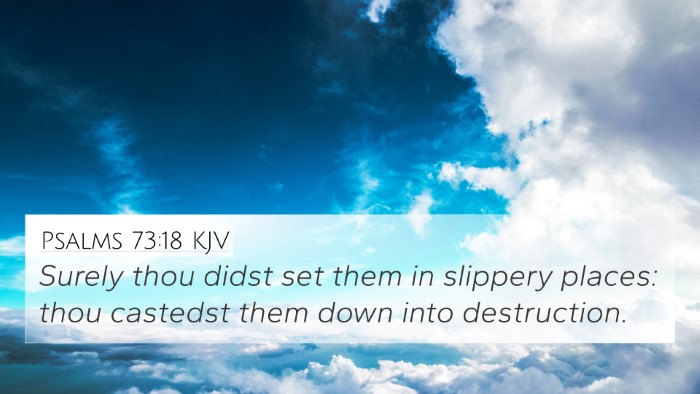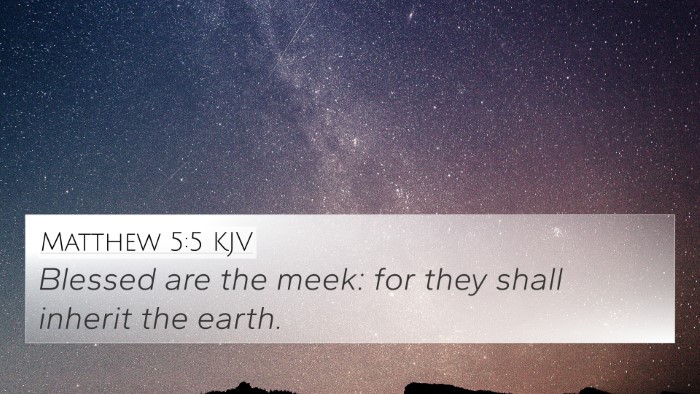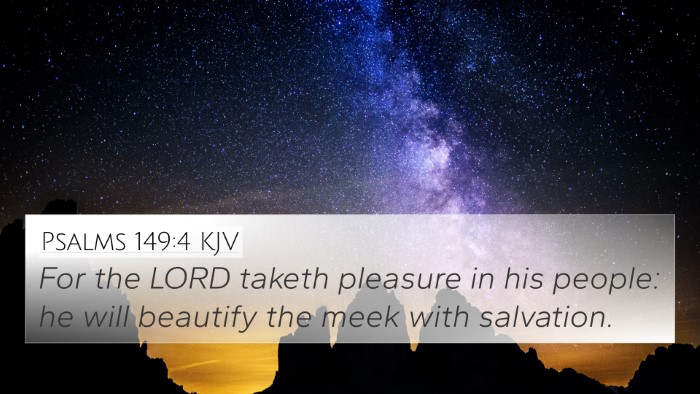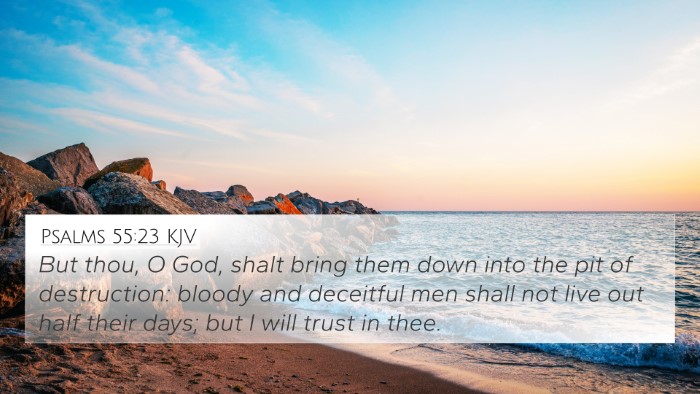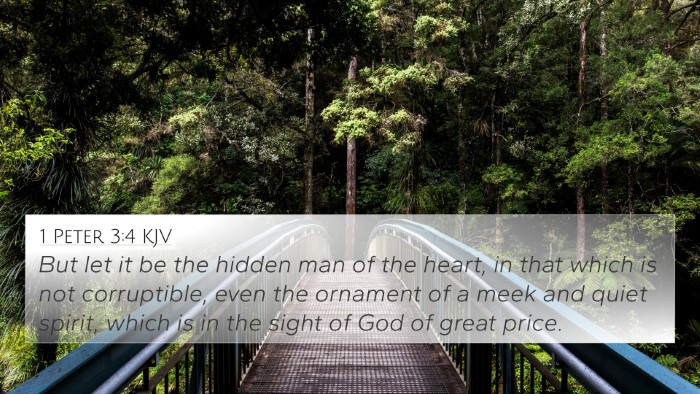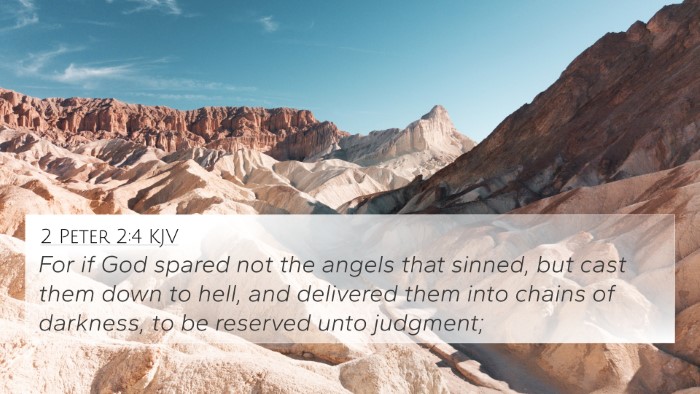Meaning and Interpretation
The verse Psalms 147:6 reflects profound theological themes regarding God's justice, mercy, and sovereignty. This verse underscores a significant biblical principle: that God is attentive to the humble and oppressed while opposing the wicked.
Insights from Commentaries
- Matthew Henry: Henry notes that God's providence empowers those who exhibit humility and reliance on Him, contrasting with the fate of the wicked, who face judgment. This illustrates God’s protective nature towards the meek and His disdain for pride.
- Albert Barnes: Barnes emphasizes that God actively engages in the affairs of humanity, showcasing His care for those who are oppressed or lowly. He articulates the idea that divine intervention occurs in the lives of the humble while the wicked are continually punished.
- Adam Clarke: Clarke adds a historical context, stating that this particular psalm celebrates the restoration of Israel post-exile. The acknowledgment of God’s favor towards the humble reinforces the idea of divine justice where the oppressors are humbled.
Thematic Connections
This verse serves as a foundation for understanding various themes throughout the Bible, notably:
- The Humility of God’s People: The repeated motif of humility and God’s responsiveness can be seen in Matthew 23:12, "For whoever exalts himself will be humbled, and whoever humbles himself will be exalted."
- Divine Justice: The contrast between the humble and the wicked ties into James 4:6, "But he gives more grace. Therefore it says, 'God opposes the proud but gives grace to the humble.'
- God's Care for the Lowly: Similarly, Psalm 138:6 reinforces this idea, "Though the Lord is on high, he looks upon the lowly, but the proud he knows from afar."
Cross-References
For those studying cross-references, several verses elucidate the messages found in Psalms 147:6:
- Luke 1:52-53: "He has brought down the mighty from their thrones and exalted those of humble estate."
- Proverbs 3:34: "Toward the scorners he is scornful, but to the humble he gives favor."
- Isaiah 57:15: "For thus says the One who is high and lifted up, who inhabits eternity, whose name is Holy: 'I dwell in the high and holy place, and also with him who is of a contrite and lowly spirit...'
- Matthew 5:5: "Blessed are the meek, for they shall inherit the earth."
- 1 Peter 5:6: "Humble yourselves, therefore, under the mighty hand of God so that at the proper time he may exalt you."
- Job 5:11: "He sets on high those who are lowly, and those who mourn are lifted to safety."
Comparative Bible Verse Analysis
Comparative analysis reveals a rich tapestry of themes across the Scriptures. The connections between Psalms 147:6 and other verses unveil a comprehensive picture of God’s character:
- Both Old and New Testaments emphasize the elevation of the humble as seen in the transition from humble faith in the Old Testament to the meekness taught by Christ in the New Testament.
- In exploring the links between prophetic texts and apostolic ones, one finds a consistent portrayal of God’s solidarity with the oppressed.
Tools for Bible Cross-Referencing
For deeper study, consider utilizing a bible concordance or a bible cross-reference guide. These tools help in:
- Finding cross-references in the Bible: Knowing how to identify relevant scriptures can deepen your understanding and appreciation of Biblical teachings.
- Cross-reference Bible study: Engaging in this method allows one to see thematic connections and theological parallels across different books of the Bible.
- Interpreting Biblical themes: Identifying links between scriptures like Psalms 147:6 and teachings from the Gospels reveals a cohesive theological narrative.
Conclusion
Psalms 147:6 encapsulates the essence of God's dealings with humanity — a tension between His grace towards the humble and His judgment of the wicked. Through various cross-references and comparative analysis, one can construct a vibrant understanding of this verse within the vast tapestry of Scripture.
